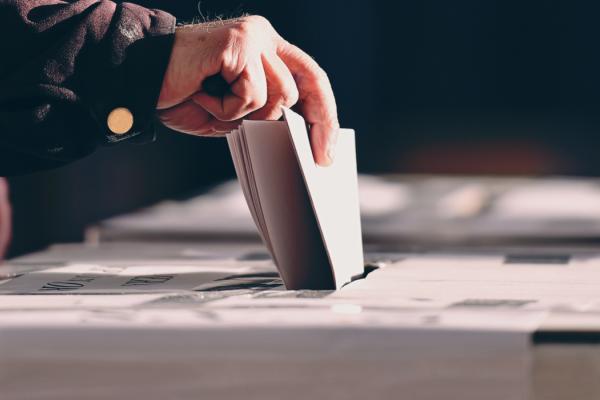ELECTIONS HAVE consequences. It’s a phrase we hear all the time, generally from whichever party won a recent election and is claiming a mandate to fulfill campaign promises.
Sometimes, for those observing Washington from the outside, the truth of this statement can get lost. People see partisan gridlock and say to themselves, “Nothing ever gets done in Washington. Both parties have all sorts of problems. Why should I even bother to vote?” Yet the truth is that all elections—local, state, national—matter. They all have consequences. And in 2017, we are seeing this play out in particularly dramatic and alarming ways.
There are countless examples, but I want to focus on the Department of Justice. While most employees there are career civil servants who stay in their positions regardless of who is president, new presidents get to fill many of the top positions with political appointees. Presidents can pick whoever they want to fill these posts (some must be confirmed by the U.S. Senate), and they can be fired by the president at any time, for any reason. FBI directors serve 10-year terms to insulate them from political pressure, but as we saw in May with James Comey, they can also be fired by the president at any time.
The danger of the Trump Justice Department can clearly be seen in Jeff Sessions’ tenure thus far as attorney general. Any notion that Sessions would show independence from the president is belied by the fact that he was one of Trump’s earliest supporters and top surrogates, and he has used some of his speeches in his first few months on the job to talk about the new “Trump era” and what that means for law enforcement. Many of us strongly opposed Sessions’ nomination because of his long record of supporting racist policies, extreme anti-immigrant views, and uncritical support for law enforcement that put him well outside of even the Republican Party’s mainstream.
In early May, Sessions again showed why he was a uniquely dangerous choice for attorney general. He issued guidance to federal prosecutors that requires them to pursue the toughest possible charges and sentences against crime suspects—even nonviolent drug offenders, who in 2013 Eric Holder had tried to partially shield from life-destroying mandatory minimum sentences. Sessions’ decision will likely affect countless individuals and families forever, exacerbate our national mass incarceration crisis, greatly boost the private prison industry, and ultimately disenfranchise a great many people of color.
It’s another pillar of Trump and Sessions’ voter-suppression strategy, which also came into clear focus in May with an executive order forming an “election integrity” commission to be co-chaired by Kansas Secretary of State Kris Kobach, a notorious voter-suppression warrior. This commission’s transparent purpose is to provide cover for the myth that voter fraud is a serious and widespread problem—despite overwhelming evidence to the contrary—so that laws can be passed to make it more difficult for minorities to vote. Let me make clear what this is: the beginning of a coordinated strategy from Washington, led by the Trump administration, to deliberately and strategically deny the voting rights of people of color and other opponents of this administration.
The other danger of the Trump Justice Department is the politicization of the FBI. As the country’s national police, the FBI has an almost-unrivaled power to destroy lives and reputations. In recognition of this, there are safeguards that are supposed to make it uniquely independent from political influence, compared to other agencies.
The firing of an FBI director is a very rare occurrence. When Bill Clinton fired William Sessions in 1993, the only other time this has happened, it was after an extensive internal investigation showed systematic ethics violations. Trump paid no regard to this precedent, firing Comey abruptly and in the most humiliating manner possible. It very clearly seems to have been done for political reasons, precisely because Comey was too independent and insufficiently loyal to Trump, and because he refused to end the investigation of Trump’s connections to Russia. The dangers of having a Trump loyalist as the nation’s top investigator are immense, and Trump’s failure to respect legal norms to this point gives us no reason to believe he will do better going forward.
Under Trump, the dangers to civil liberty and free and fair elections should not be underestimated. For everyone who worries about drug policies that lead to racialized mass incarceration, for everyone who fears the myth of voter fraud being used to disenfranchise minorities, for every American who believes we are a nation ruled by laws and not by a ruler, and for every Christian who longs for a more just and equitable society, every day we see how painfully true it is that elections have consequences.

Got something to say about what you're reading? We value your feedback!

